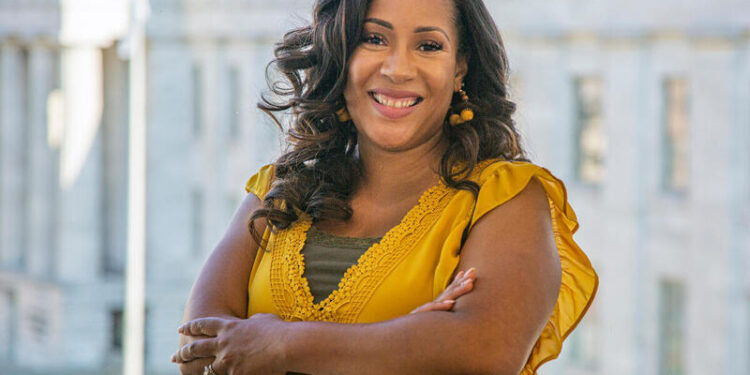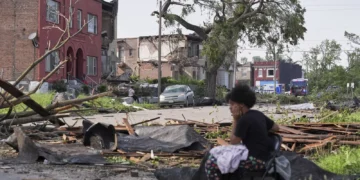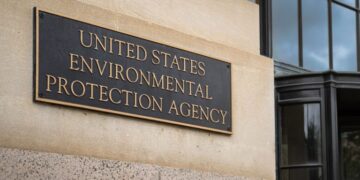Tim Aubry / Greenpeace
May 31, 2024 Story by: Editor
Ebony Twilley Martin isn’t just shattering glass ceilings; she’s redefining the landscape of environmental activism. As the newly appointed Executive Director of Greenpeace USA, Twilley Martin emerges as a formidable force within one of the world’s foremost environmental organizations. Her appointment signifies a significant breakthrough, marking her as the first Black woman to ascend to such a prominent leadership role within Greenpeace USA. This signals a fresh, transformative chapter for the organization, particularly in its dedication to racial and environmental justice. Though her journey to this pivotal position may not mirror the typical trajectory of environmental leadership, it arrives precisely when needed most.
“I’m not an environmentalist by profession or education. My journey began as a mother,” Ebony reveals. Her foray into advocacy stemmed from her eldest son’s respiratory struggles, with a pediatrician linking them to environmental pollution. Her realization echoed the experiences of countless parents residing in overburdened communities. This awakening ignited her commitment to environmental justice, recognizing the inextricable link between the climate crisis and racial justice, economic equity, and civil rights. Her firsthand encounters inform her leadership and vision as she steps into this crucial role.
Over the past eleven years, Ebony has dedicated herself to Greenpeace USA, consistently advocating for environmental justice. With a background in talent management, she leverages her skills in building relationships and fostering connections—a valuable asset on her journey. However, her path has been fraught with challenges. Despite celebrating her ascent, Ebony has encountered the skepticism often faced by Black women in leadership.
She confronts the stereotypes of “superwoman” and “Black Girl Magic,” which can obscure the vulnerabilities of Black women leaders, hindering their access to support. “Research shows that support for Black women is lacking. Information is withheld and can be used against us. There’s an assumption of ‘Black Girl Magic’—that we can simply wave a wand and make things happen,” Ebony reflects. Despite these hurdles, Ebony presses forward, buoyed by faith and a recognition of her sources of strength.
In her leadership role, Ebony is committed to steering Greenpeace USA toward a more inclusive, holistic approach to environmental advocacy. Under her guidance, Greenpeace has intensified its focus on the intersection of global environmental issues with racial and social justice. “We’ve embarked on a journey to ’embed justice,’ empowering every member of our organization to take ownership. For real progress to occur, everyone must recognize and embrace their role,” Ebony asserts. She argues persuasively that combating climate change necessitates addressing the systemic racism that fuels it. Even her social media handles underscore her dedication to justice, with “justice” prominently featured.
One of Ebony’s key initiatives is broadening the organization’s approach from ecosystems and animals to encompass people, particularly delving into the racial and social justice dimensions of environmental harm. This includes integrating voting rights protection into Greenpeace USA’s agenda. She advocates for the empowerment of all individuals to participate fully in democracy, viewing it as essential for effective environmental action. Her rationale is clear: robust civic engagement leads to policies that reflect the urgent need for climate action and justice.
Ebony’s leadership strategy extends to dismantling existing systems of oppression. She envisions a Greenpeace that actively engages Black and Brown communities in environmental advocacy, ensuring that these communities, often disproportionately impacted by environmental degradation, have a significant voice in shaping environmental movements and policies. She emphasizes collaboration and community-led solutions, recognizing their vital role in building a resilient movement capable of addressing the complex challenges of climate change and social inequalities. Source: Forbes
















